A year ago, I wrote a post in which I recapped all of the credit cards that I opened in 2017. That year was a big milestone for me – it marked my first year ever of travel hacking. Prior to 2017, I only had two credit cards. One was a Citi credit card that I got in college, the other was a Target credit card that gave me 5% off my Target purchases.
In that first year, my wife and I opened up 12 credit cards between the two of us and racked up over 600,000 points and miles. Not too shabby at all.
2018 marked my second year of travel hacking and it turned out to be even more lucrative than 2017! I ended up opening a total of 13 credit cards – 9 for me and 4 for my wife. In total, my wife and I accumulated almost 1 million points and miles. When you add in the points we earned from the actual spending we did on the cards, we ended up accumulating over a million points and miles. That’s pretty incredible, especially when you consider that just 2 years ago, I literally knew nothing about credit cards and travel hacking.
I’ve always thought it was helpful when bloggers shared the cards they got with their audience, so, with the start of the new year, I thought I’d share all of the details about the credit cards I opened in 2018. My hope is that this post can give you a good example of how to approach your credit cards. At a minimum, this post should hopefully give you a good look into how a regular person like me strategizes earning points and miles.
The Credit Cards I Opened In 2018
In 2018, I opened up exclusively business credit cards. For those of you that don’t know, business cards are extremely advantageous because they allow you to get more cards without impacting your 5/24 status. I wrote a post about why you need to look at business credit cards and you should read that post if you’re looking for more information about how business credit cards work and why you need to use them if you want to maximize your points and miles.
Below is a recap of all of the credit cards I opened in 2018.
1. Chase Ink Business Preferred
I earned a total of 80,000 Chase Ultimate Rewards points by hitting the minimum spend requirement on this card early in the year. The Chase Ink Business Preferred (CIP) is actually the business card that I use for this blog since it offers 3x points on advertising spending. I’ve been running a lot of Facebook ads for this site, which means that using this card is very advantageous for me.
Note that the CIP does have a $95 annual fee, but that’s well worth it since the signup bonus is worth a minimum of $800 and worth at least $1,000 if used for travel (and worth much more if transferred to partners). I use this card solely for blog expenses and will continue to keep it as my blog business card for the foreseeable future.
2. CitiBusiness/AAdvantage Platinum Select World Mastercard
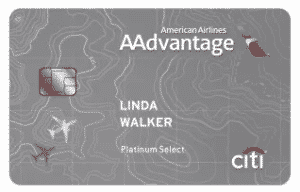
3. American Express Platinum Delta SkyMiles Business Credit Card
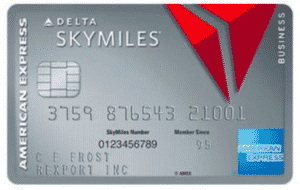
4. Chase Marriott Rewards Premier Business Credit Card
I opened this card right before the Marriott and SPG merger was completed, so this particular card does not exist anymore, but there’s another version of this card that’s basically the same. This card had a signup bonus of 75,000 Marriott points, which was pretty good. The annual fee was also waived in the first year.
Note that if you’re looking for Marriott or SPG points, be sure to research the rules. With the Marriott-SPG merger, there are some fairly complex rules that determine whether you’re eligible to earn the bonus depending on which SPG or Marriott cards you open.
5. American Express Business Gold Card
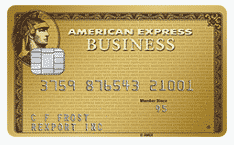
The $1,500 worth of G-Suite credit is good for me to use on this blog. I use G-Suite for my business email and storage now, and with the $1,500 worth of credits that I’ve purchased, I basically can cover those expenses for the next decade.
6. Barclays AAdvantage Aviator Business Mastercard (Opened 7/2018)
This card gave me 50,000 American Airlines miles after making one purchase with the card. It has a $95 annual fee that isn’t waived in the first year, so essentially, it’s like I paid $95 for 50,000 American Airlines miles, as earning the bonus only required me to make a single purchase with the card. $95 for 50,000 American Airlines miles was a good price, especially since I racked up a lot of American Airlines miles in 2018.
7. Chase Ink Business Unlimited
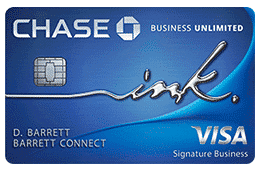
Total Points I Earned From Credit Card Signup Bonuses in 2018: 620,000
I personally earned 620,000 points and miles from the multiple credit cards I opened in 2018. It’s a huge stash of points – more than it seems like I can spend while working a full-time job.
As for whether you can do this same thing, I’d say absolutely you can. If you’re doing any sort of side hustle, then you absolutely have a business, which means that you are eligible to open business credit cards. A common mistake I see people make is thinking that they can only get a business card if they have a “real business.” The key is to remember that if you’re doing any gig economy or sharing economy thing, you absolutely have a real business.
A lot of people are reluctant to get business credit cards because they think that only business expenses can go on them. The truth is that there’s no actual requirement that your business credit cards only have business expenses on them, so you can put personal expenses on your business cards without worry.
Note that if you have an actual business, it makes sense to only put business expenses on those particular cards for accounting purposes. If you have a business that is incorporated in some way, you should also not mix any business or personal expenses for legal liability reasons. Of the business cards I got in 2018, only 1 is used exclusively for business purposes. The rest are used as I see fit.
The Cards My Wife Got In 2018
My wife has always been more of a passive credit card user and she pretty much only gets cards when I tell her to do so. We didn’t open any cards for her in the first half of the year since she was in the middle of buying a dental practice and we didn’t want any new credit lines or hard pulls messing up her practice loan approvals.
Once the purchase was completed, we tried to get her the Chase Ink Preferred card to use for her new business, but oddly, we got denied and Chase wouldn’t budge on letting her get the card (we were essentially told to wait a few months and try again).
Since we couldn’t get any Chase cards, we ended up getting here a Citi business card and an American Express business card for her to use for her practice, then added the Chase business cards later.
Below is some more detail about the cards my wife got in 2018. Note that every card my wife got in 2018 was for her dental practice. She didn’t get any personal cards or business cards not related to her practice (in other words, these cards are only used for her practice expenses).
1. CitiBusiness/AAdvantage Platinum Select World Mastercard
We ended up getting this card because my wife needed a non-AmEx card to pay vendors with – many vendors only take Visa or MasterCard, which can make relying on just an American Express card problematic.
2. Hilton Honors American Express Business Credit Card
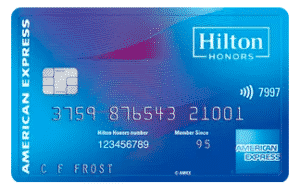
The rationale for this card was that it had a good signup bonus, and it also came with a Priority Pass that gave her 10 free lounge passes per year. We already have a priority pass with my Chase Sapphire Reserve, but since my wife doesn’t always travel with me, we thought it made sense to make sure she had her own Priority Pass just for the times when she’s traveling on her own. The card also gives you two free night certificates and Hilton Diamond status after you spend a lot of money on the card. Since her practice has so much overhead, this seemed like an easy way to earn a high-level hotel status.
3. Chase Ink Business Preferred
We finally got this card for my wife’s practice towards the end of the year. I referred her using my CIP referral link, so we ended up getting a total of 100,000 Chase Ultimate Rewards Points – 80,000 for hitting the minimum spend and 20,000 for the referral.
4. American Express Blue Business Plus (Opened 11/2018)
This card didn’t have a signup bonus, but I wanted my wife to have a decent base American Express card to use for her practice. The point of this card is really just to serve as a base card that has a decent earnings rate for everyday business spending. Basically, all of my wife’s dental practice spending should go on either this card or the Chase Ink Preferred card.
Total Points My Wife Earned From Credit Card Signup Bonuses in 2018: 300,000
Altogether, my wife and I earned a combined 920,000 points and miles between all of the various cards we got in 2018. When you add in all of the points we earned from spending on the cards, we definitely earned over 1 million points and miles. Crazy!
My Credit Card Strategy for 2019
2019 will pretty much be a fresh year for me, as I haven’t gotten a new personal credit card since May of 2018. What this means is that, by next year, I’ll pretty much be looking at a fresh slate when it comes to the Chase 5/24 rule.
One big thing is that my wife and I have the Southwest Companion Pass, which will expire at the end of 2019. The Southwest Companion Pass has proven to be really useful for us, so we’re definitely going to try to get it again for 2020 and 2021. This will involve either me getting the two cards necessary to earn the bonus, or we’ll have my wife earn the Companion Pass again since she’ll be eligible for Southwest bonuses at the end of the year (assuming the rules don’t change by then, which they definitely can).
In conclusion, 2018 turned out to be a very good year on the travel hacking front. We’ve gotten to the point now where our mileage accounts are very full.
Getting started with all of this stuff can be scary, but like anything, once you understand how it works, it becomes much easier. Credit cards won’t make you rich, but if you do them right, they can be very valuable. For high-income earners, it becomes even more valuable since credit card points are tax-free.
If you have any questions about your own credit card plans, feel free to shoot me an email on my contact page.

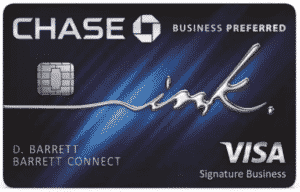


One million points is pretty amazing! Thanks for sharing your list of cards.
Two questions I have been wondering about:
1) What would you say is the minimum revenue to have before applying for a business card? We currently probably can scrape together about $1,000 of annual revenue from side hustles, so it seems strange to apply for a business credit card that would have a minimum spend (to get bonus) of 3-5 times our current annual revenue. Right now we are not sure if we will really grow that revenue.
2) What is your thoughts on adding your wife as an authorized user on your card, or vice versa? If there are extra bonus points it is nice, but I know it can mess up the 5/24 count with Chase.
$1,000 of annual revenue is fine. I’ve put as low as that and had no problems. You can always up it if you want – it’s not like you have to be exact.
Don’t add your wife as an authorized user. It’s better to have her open accounts for herself, rather than being an authorized user. If you do add her as an authorized user though, you can always remove her later, but I wouldn’t recommend adding her as one.
Very nice blog and i enjoyed reading your articles. Great stuff. I had one question about “The strategy with the CIP is to open your first CIP with your social security number, then open your second CIP using an EIN”. Looking at the application form it does ask for business and tax id. Did you mean one can use the same business name (an LLC for ex.) with two different tax ids ? first card using own ssn and second using ein (for the business) ?
Thanks
Hi,
So, when you apply for your first CIP, your business name should be just your name. I think you can also use your business name if you actually have an entity set up. For tax ID number, you put your SSN. Then in the bottom part of the application where you fill out your personal information, you put your SSN again in the space where it says Social Security Number.
When you apply again with an EIN, your business name should still be your name (unless you have an actual entity set up). The Tax ID number should be your EIN.
My suggestion would be, first card use your own name as your business and your SSN. Second card you can use your own name or a business if you have one, and then an EIN.
Great. Thanks. Chase has limit of 5 opened cards over last 24 months. I assume that if one apply to this card under different Tax id (SSN then EIN), it’s 2 different entities and the card is counted once toward the limit of 5 ? meaning if i apply to the card under my name that is counted towards my name and SSN and when i apply under my business it’s counted one toward the 5 limit for my business ?
The great thing is that business cards from Chase, Amex, and Citi do NOT appear on your credit report. That means that when you get a Chase biz card, it has no impact on your 5/24 status. Despite opening up all those cards in 2018, I’m still at 4/24 since I only opened biz cards.
So when you get those Chase biz cards, they will not count towards your 5/24 status. The only thing to know is that you can only get the Chase biz cards if you’re under 5/24. So to figure that out, count all the personal cards you’ve opened in the last 24 months. That’s your current 5/24 count.
Question about the Marriott Biz card … my wife and I both have that card and we are coming up on our 1-year anniversary date. We’ve earned our bonuses on the cards but are debating on keeping them open.
It appears you get 1-free night stay on your anniversary date for a 35,000 point or less hotel.
Do you think the $95 annual fee is worth it? I keep going back and forth on deciding what to do.
Hey John. Definitely an individual choice for you and your wife. I had an SPG biz card that was up for renewal in October and ultimately I decided to keep it for the free night, since I figured I’d probably use the free night at some point in the coming year. If you think you’ll need to pay for a hotel room that costs you more than $95, then definitely makes sense to keep. If you don’t think you’ll spend more than $95 on a hotel room this year, then drop the card.
I’m also debating about whether I’ll keep my Marriott Biz card when it comes up for renewal this year. Still haven’t made my decision yet.
Thanks for all the incredible info! This is exciting stuff. One question I had was regarding cards with annual fees. Obviously it makes sense to cancel any cards you don’t need before the annual fee comes around. However, as you mentioned in the first card you opened, it sometimes makes sense to keep cards that have annual fees depending on the bonuses. As someone who operates on a tight budget, would you recommend keeping any cards that have annual fees? Even if the bonuses justify paying an annual fee, I don’t have any wiggle room unfortunately to cover any annual fees. Do some cards offer the opportunity to have an annual fee waived, say if you spend a certain amount or maybe use your points to cover the fee??
Absolutely. I need to write a post about what to do about cards after the first year, but essentially, it’s call and seek a retention offer, and if no retention offer, then decide whether to close or downgrade the card, if possible.
I have a SW Biz card for example that has a $99 annual fee. Called up and asked for a retention offer and they gave me $100 statement credit to keep the card open. Plus, that card came with 6000 anniversary miles each year. So, for my 2nd year with that card, I essentially got paid $1 and was given 6000 miles.
Kevin
Really enjoy reading all your posts having only recently come across the site. The side hustle action is fantastic! Hoe has your personal credit score been impacted by the last two years of card openings? I.e. If you look at equifax or another monitoring service, pre card activity to today, how impactful has the game been? Thanks
Hey Michael. So my personal credit score is still in the high 700s and low 800s range, even as I continue to get a lot of hard pulls and open new cards. As I write this, according to the official Experian app, my credit score is 805. My TransUnion and Equifax are about the same as well.
Really, there’s a lot more that goes into credit scores than people realize, and if you’ve got a few old cards already, your credit score will not really be impacted very much. That was my big fear as well when I started, but now that I understand how credit scores actually work, I realize that its a myth that your credit score gets hurt by opening up cards.
Good job FP, congrats on achieving the 1MM milestone!. As you say, the strategy you’re sharing could be followed by anyone so I really appreciate your transparency. I think it’s really important to highlight that even though travel hacking offers many perks it is something that should be tackled with lots of discipline and planning. As you clearly state, all these cards, for the most part, have minimum spends ($3K-$5K) that need to be reached within a few months (~3 months). I personally try to time opening of cards with upcoming major FIXED expenses and most importantly I pay the full balance at the end of the month. If you find yourself spending more and paying interest then you’re defeating the whole purpose of travel hacking. Thanks for reminding me about the EIN strategy. This is something me and the wife plan on doing in 201 for the CIP. Happy new year!
If you figure that most people spend somewhere between $1,000 and $2,000 per month on things that could go on credit cards, that means everyone is spending between $12,000 and $24,000 per year on credit cards. That’s easily 4-6 credit card minimum spends that can be hit each year. I think anyone could do that if they put in some effort!
Make sure you do the two CIPs for each of you. Four CIPs, plus the self-referrals means 380,000 total chase points.
Wow! Good for you! Congrats
Happy New Year
Thanks Jo Ann!